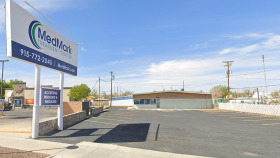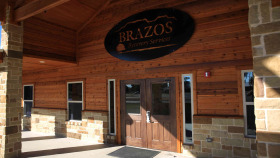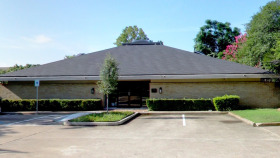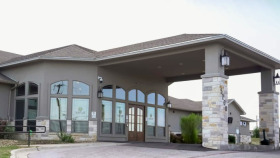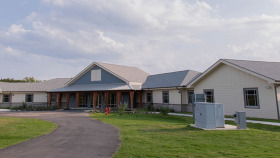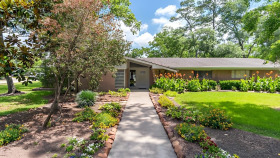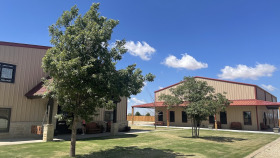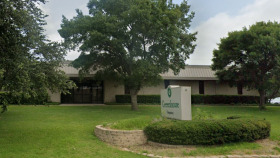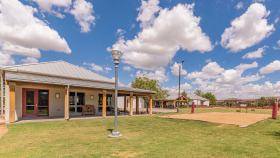Expert Insights
As a mental health professional helping Houston residents battling addictions to prescriptions medicines, I have witnessed how helpless addiction can make people feel.
The journey of progressing from a legitimate prescription like pain relievers after surgery or stimulants for ADHD to dependency when medical oversight ends is a journey that I wish everyone could be spared from.
451,000 individuals in Texas struggle with prescription use disorders according to the SAMHSA, and then University of Texas notes that 13.2% of university students misuse prescription stimulants. Our state ranks among the lowest states for access to mental health services according to a peer-reviewed article in Cureus.
This means vulnerable populations in desperate need of addressing trauma and learning coping skills to rebuild their lives are left behind. Addiction is a treatable condition and we must do better.
~ Serg Valencia, MD, MS
How Much Does Addiction Treatment in Texas Cost?
Texas is ranked 18th nationwide in terms of addiction treatment affordability, with an average cost of addiction treatment of $56,623.
- Medical detox is the most expensive, with an average cost of $139,596
- Inpatient rehab in Texas costs an average of $49,966
- Outpatient rehab in Texas costs an average of $8,302
- Outpatient methadone treatment is the most affordable, with an average cost of $7,377
Keep in mind these costs are averages for all types of addiction treatment, including medically supervised detox and residential inpatient rehab, both of which drive up the averages. These numbers also reflect the full cost of drug rehab without any insurance coverage. Most patients can expect to pay far less than these average for more typical outpatient treatment, MAT, and therapy.
Cost of Drug Rehab in Texas Compared to Nearby States
Here is how much addiction treatment costs in Texas vs nearby states like Louisiana, New Mexico, and Oklahoma.
Specific prices can vary due to:
- Type of treatment program (residential vs. outpatient)
- Amenities offered (such as luxury accommodations)
- Length of program (30 vs. 90 days or longer)
- Facility location (urban vs. countryside)
- Type of insurance accepted
- If the facility receives state or national funding
How to Pay for Drug Rehab in Texas
Whether or not you carry insurance, you can find a Texas rehab center that suits your needs and works with your financial situation. There are more than 500 addiction treatment facilities throughout the state, most of which offer a multitude of payment options.
Of the many rehab centers across Texas:
Medicaid in Texas
Texas offers government-funded Medicaid healthcare insurance. This provides coverage for addiction and substance abuse treatment through state programs, such as the Texas Medicaid managed care program, called STAR.
Substance abuse treatment in Texas covered by Medicaid programs typically includes services such as crisis care and detox, medication assisted treatment (MAT), inpatient treatment, residential treatment, intensive outpatient care, regular outpatient programs, 12 Step facilitation, and faith-based programming.
Spanish-speaking programs, gender-specific programs, LGBTQ+ programs, and special programs for pregnant women are available at some facilities. You’ll need to check with your insurance provider regarding which options are available to you.
Medicare and Medicare Advantage
Medicare and Medicare Advantage healthcare plans in Texas cover mental health as well as substance abuse treatment for patients who have a diagnosis of substance abuse disorder.
Services vary by plan but may include detox, medication assisted treatment (MAT), inpatient or residential care, outpatient treatment (partial hospitalization programs or PHPs, intensive outpatient programs or IOPs, and regular outpatient visits). Coverage may also include individual, group, and family counseling; medication management; and any necessary psychiatric or diagnostic evaluations.
It is important to check with your insurance provider to find out the details of your plan’s substance abuse treatment coverage. Many policies limit the number of paid inpatient days and have other restrictions as well. You may also be responsible for deductibles and copays.2
Military Insurance
Insurance coverage available to military and military veterans include TRICARE insurance and benefits available through the Department of Veterans Affairs (VA). TRICARE covers substance abuse treatment for individuals diagnosed with substance use disorder (SUD).
Services provided may include residential/inpatient care, opioid treatment with detox and medication assisted treatment (MAT), plus outpatient treatment (intensive outpatient programs – IOPs, partial hospitalization programs – PHPs, and regular outpatient). Policies vary on the kinds of treatment services they offer, and there may be limits on certain services. Not all services will be offered at a particular facility.
Department of Veterans Affairs (VA) addiction treatment benefits for military veterans in Texas are offered through the VA Substance Use Disorder (SUD) program. This program covers inpatient, outpatient, and opioid treatment services. Services vary by VA facility.4
Major Private Insurance Carriers in Texas
- Aetna Healthcare
- Ambetter
- Amerigroup
- Anthem Blue Cross
- Baylor, Scott, & White Health Plan
- BlueCross/Blue Shield of Texas
- Celtic Insurance
- CHRISTUS Health Plan
- Cigna
- FirstCare Health Plans
- Healthsmart
- Humana
- Moda Health Plan
- Oscar Health
- Sendero Health Plans
- Texas First Health
- UnitedHealthcare
Tribal and Indigenous Programs
Indian Health Services (IHS)
The national Indian Health Services (IHS) provides evidence-based and culturally appropriate substance abuse services to members of American Indian and Alaska Native tribes in states with these populations.
Services that may be offered include mental health assessments; residential and inpatient care; outpatient treatment; individual, group, and family counseling; 12 Step groups, and skills/vocational training. Tribal drug treatment services vary by state and local location. A tribal enrollment card may be required to access services.
In Texas, the American Indian Center of Houston website offers links to low and no cost resources for substance use treatment in the greater Houston area.
The IHS Division of Behavioral Health coordinates with tribal organizations nationwide to share knowledge about behavioral health issues and programs for Native American Indians and Alaska Natives, including information on substance abuse treatment.
Native American Family Program (virtual/online)
The Betty Ford Hazelden organization offers a free monthly online substance abuse program facilitated by Native American credentialed mental health professionals.
Topics include how substance abuse affects families, “unhealthy helping,” boundaries, helpful communication, and sources of support. You must register for the program and have a computer that has video and microphone capabilities.
We R Native
This is a website for American Indian and Alaska Native adolescents and young adults in Texas and other states. Local leaders, or “ambassadors” coordinate between local and national groups.
We R Native provides information and resources for mental health, as well as addiction prevention and recovery. It offers chat groups, educational videos, and links to culturally sensitive and age-appropriate behavioral health services.
988 Suicide & Crisis Hotline for Native American Indian, Indigenous, and Alaska Natives
Funded by the Substance Abuse and Mental Health Services Administration (SAMHSA), this specialized hotline offers help in finding culturally specific mental health resources for American Indian and Alaska Native individuals.
The hotline’s 24/7 services include crisis intervention via phone or online chat, information on local addiction prevention, and recovery education and programs in the state of Texas as well as other states.
Other Low-Cost Options
Financial Assistance
To finance your drug rehab in Texas, you might consider acquiring a loan from a bank or from a family member or friend. You might also explore using a social media platform such as GoFundMe to try to raise funds.
Alternatively, if you are a member of a group that is sometimes subject to discrimination (ex: LGBTQ+; racial or cultural minority), you might find an advocacy group supportive of your population that may be able to offer you a scholarship or other financial aid to help pay for treatment.
Sliding Scale Payments
Often, rehab facilities will offer reduced payment options for potential clients who would otherwise not be able to afford treatment at their facility, even if they have insurance coverage. These fee reductions are often based on income.
If your income falls below the federal poverty level, you’d probably be able to receive the maximum amount of fee reduction that the facility offers. Because drug rehab costs vary greatly – for instance, whether it is a luxury facility or a state-funded facility – a sliding fee scale discount would reduce your potential cost, but it wouldn’t necessarily make every facility an affordable option for you.
Family Medical Leave Act (FMLA)
The 1993 FMLA was enacted to give employees job security when they access mental health care, including treatment for addiction. With FMLA, you can take up to 12 weeks of unpaid leave during a 12-month period and not lose your job. During your leave time your employer must preserve your health insurance coverage.
Substance Abuse and Mental Health Services Administration (SAMHSA) Block Grants
The Substance Abuse and Mental Health Services Administration, an agency of the U.S. Department of Health and Human Services, distributes block grants to all 50 states. This funding is available to local government and non-governmental organizations.
It is used to assist community mental health facilities in providing services, such as mental health crisis services, inpatient/residential addiction treatment programs, and outpatient addiction treatment. Inquire at the rehab facilities you are considering whether they have SAMHSA grants available.
Resources
- Substance Abuse and Mental Health Services Administration. (2020). National Survey of Substance Abuse Treatment Services (N-SSATS): 2020, Data on Substance Abuse Treatment Facilities.
- Substance Abuse and Mental Health Services Administration, Center for Behavioral Health Statistics and Quality. (2019-2020). National Survey on Drug Use and Health.
- Texas Department of State Health Services. (2018). Hospital Emergency Department Data Collection 2016-2017. Texas Health and Human Services.
- Texas Health and Safety code. https://statutes.capitol.texas.gov/Docs/HS/htm/HS.481.htm#481.120
- National Rehab Hotline Texas. https://nationalrehabhotline.org/texas








